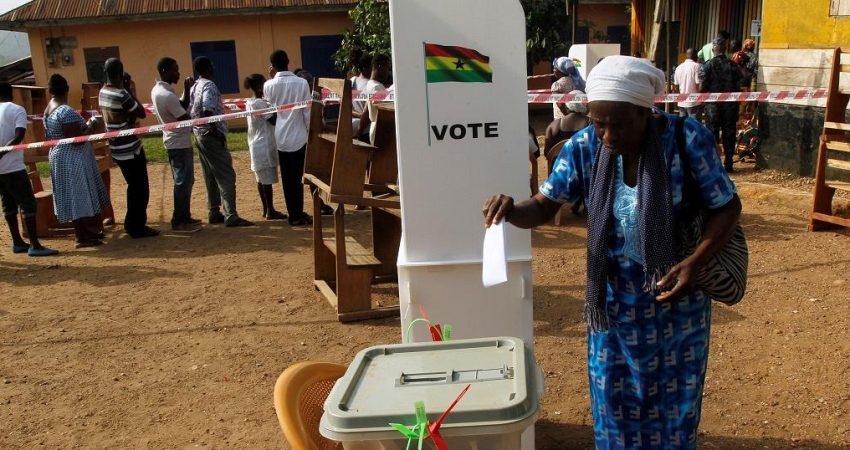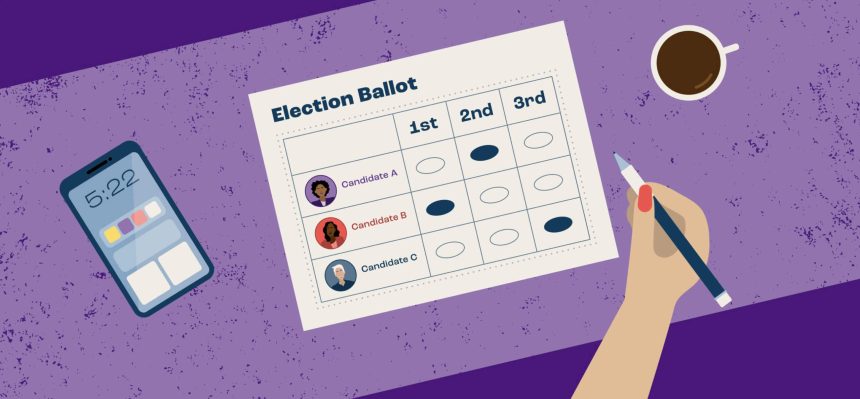In Ghana, general elections for both presidential and parliament positions are held every four years on 7th December.
The country has always sought ways to refine its electoral processes including the use of biometrics to verify voters. But there might be another process Ghana might need to consider in future elections: Ranked choice voting (RCV).
RCV presents an innovative method that could potentially enhance the democratic experience in the country. So how does it work?
What is Ranked Choice Voting?
Ranked choice voting is an electoral system where voters rank candidates in order of preference. If a candidate receives a majority of the first-preference votes, they are declared the winner.
If no candidate achieves this, the candidate with the fewest votes is eliminated, and their votes are redistributed to the remaining candidates based on the voters’ next preferences. This process continues until a candidate secures a majority.
Countries that use RCV in their general elections include New Zealand, Ireland, Australia, Malta, and Ireland.

The Potential Implementation in Ghana
For Ghana, implementing RCV would require a constitutional amendment, as the current system is based on a simple majority.
The Electoral Commission of Ghana would need to conduct extensive public education campaigns to familiarize voters with the new system. Additionally, logistical considerations, such as ballot design and vote-counting procedures, would need to be addressed.
Benefits of RCV for Ghana
RCV could offer several benefits to Ghana’s electoral process:
- Reduction in Spoiler Effect: Voters can support their preferred candidate without the fear of inadvertently helping elect their least preferred candidate.
- Promotion of Majority Support: Candidates would need to appeal to a broader base to gain the necessary ranked votes, ensuring the winner has widespread support.
- Discouragement of Negative Campaigning: Candidates would be incentivized to seek second-choice votes from their opponents’ supporters, fostering a more positive campaign environment.
- Cost Savings: By potentially eliminating the need for separate runoff elections, RCV could reduce the costs associated with conducting multiple rounds of voting.
Challenges and Considerations
Despite the benefits, RCV would also pose challenges:
- Voter Education: Educating the electorate on the new voting system would be crucial for its success.
- Ballot Complexity: The risk of increased ballot spoilage due to voter confusion could be a concern.
- Counting Process: The counting process would be more complex and time-consuming, requiring robust systems to ensure accuracy and transparency.
The adoption of ranked-choice voting in Ghana could represent a significant shift in the nation’s electoral landscape. While it promises to enhance democratic principles such as majority rule and voter choice, careful consideration must be given to the challenges it presents.
As Ghana continues to evolve its democratic processes, RCV offers an intriguing possibility for the future of elections in the country. The dialogue surrounding its potential adoption will undoubtedly contribute to the ongoing development of Ghana’s robust democratic system.
Catch up on news and other tidbits on our WhatsApp Community Page, Twitter/X, and subscribe to our weekly newsletter to ensure you don’t miss out on any news.










